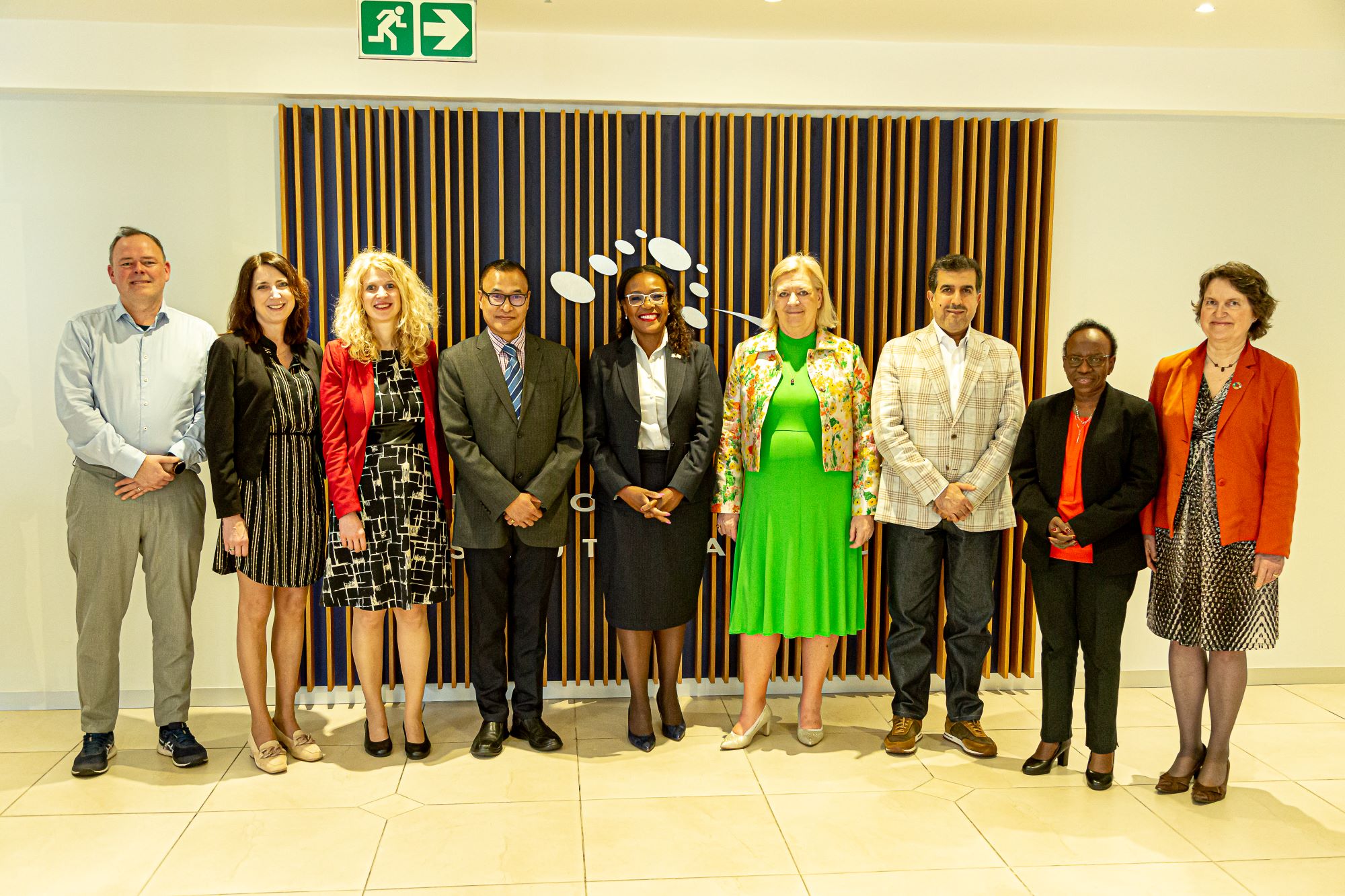About IDI
Our Cross-Cutting Priorities
Our Results
Meet the IDI Board
IDI's Board is composed of ten members from different supreme audit institutions. Get to know them better in our "Meet the Board" series.

Ms. Nancy Gathungu is the Auditor-General of the Republic of Kenya. She was appointed to the position on July 17, 2020. Holder of a Master’s degree in Business Administration (Strategic Management) and Bachelor’s degree in Commerce (Accounting), Ms Gathungu is currently pursuing a Doctoral Degree (PhD) in Business Administration (Strategic Management). She has more than 27 years’ experience in public sector auditing, Quality Assurance and Information Technology audit.
Prior to her appointment, she served as Director of Audit and provided leadership in various Directorates at the Office of the Auditor General, Kenya, namely Quality Assurance, Forensic Audit, IT Audit, and Learning and Development. She was also Head of Internal Audit at Kenyatta National Hospital, the largest public referral and teaching hospital in Kenya. Ms. Gathungu is a certified member and trainer with the Institute of Certified Public Accountants of Kenya (ICPAK), a Certified Information Systems Auditor (CISA) and a member of Association of Women Accountants in Kenya (AWAK) where she mentors young female accountants.
Nancy Gathungu served as Vice Chairperson of the African Organisation of Supreme Audit Institutions – English Speaking (AFROSAI-E) before being elected as Chair in 2023, and she is also Chair of the AFROSAI Technical and Institutional Capacity Building Committee. She is a facilitator, resource person and peer reviewer in audit process, risk management and governance as well as public finance management, communications, ethics and integrity. She has handled various high-level assignments for AFROSAI-E and INTOSAI Development Initiative (IDI).
Indeed, independence of SAIs is a global challenge and the IDI Global SAI Stocktaking reports continue to indicate that this is so. The AFROSAI-E’s State of the Region: Institutional Capacity Building Framework (ICBF) Self-Assessment Report, 2021 shows a 4-percentage drop in the Independence and Legal Framework domain from 2020 to 2021. This is an indication that independence is a point of concern in the region, and this calls for urgent interventions.
As a priority for the AFROSAI Region, it is one of the Strategic Priority objectives in the 2022-2026 Strategic Plan. At the AFROSAI-E level, we are passionate about ensuring that our members become more independent. It should not be lost on us that the degree of SAIs’ independence varies based on the environments in which SAIs operate. One of the strategies we have adopted is robust stakeholder engagement and advocacy that would focus on creating awareness on the importance of SAI Independence. This engagement targets Civil Society Organisations, Professional Bodies, the Media and Parliament, to give and sustain a voice on SAI Independence, with a call-to-action to influence legal reforms. We have also identified the political actors who are key to enhancing SAI independence. The African Union is a key partner for SAIs and we want to use the platform to amplify the voice of SAIs. We have also agreed to identify eminent personalities within the region to become goodwill ambassadors to SAIs.
In times of crisis, and particularly to earn their space in independence, SAIs should demonstrate their relevance by conducting audits on issues that are topical in the moment to add value to public debate. IDI can therefore offer support in conducting audits in times of such crises and facilitate training of SAI staff on this. Additionally, SAIs can open dialogue with government officials on the benefits of the independence of SAIs especially in crisis situations. This dialogue can be amplified by Civil Society Organisations and the media. IDI can therefore facilitate a vibrant engagement with these stakeholders for this purpose.
We are grateful for the support from IDI and for offering us an opportunity to peer-support the SAIs of both South Sudan and The Gambia. This has been a learning experience for SAI Kenya especially in understanding that it is important not to leave no one behind, and that we need all SAI voices to influence change in our governments.
One of the take-aways is the need to understand the context in which the SAIs operate, in order to give effective support. This includes assessment of internal capabilities and creating teams and networks to work towards a common goal. IDI can involve peers as external resources to offer coaching and act as guides on the sides, while giving the SAIs being supported an opportunity to drive the process. IDI should therefore expose peers to training on Problem-Driven Iterative Approach for effective engagement.
IDI facilitates a good many peer-to-peer support arrangements and this is something SAI Kenya very much encourages. From our experience, IDI can also be instrumental in ensuring SAIs deliver impactful audits that bring positive change to the lives of citizens.
